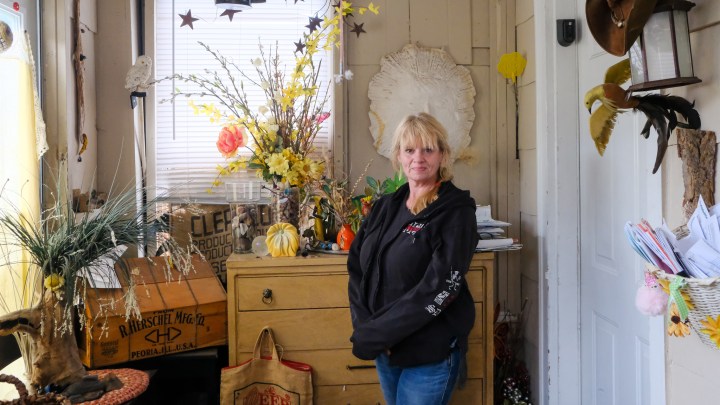
Voters in St. Paul, Minnesota, to decide on strict rent control proposal
Voters in St. Paul, Minnesota, to decide on strict rent control proposal

Several weeks ago, St. Paul, Minnesota, resident Emily Lynch received notice from her landlord that her rent will be going up from about $1,200 to about $1,600 a month come January.
Lynch started working again this past spring after losing her job as a steelworker early in the pandemic, she said. Financially, she is still catching up, and the prospect of paying more than 30% more in rent has her looking for a new place to live.
“It’s hard to think about,” she said. “It’s not easy to find a place.”
One reason her landlord, Joe Collins, is raising the rent, he said, is to reset it to a higher rate before the city adopts possible tenant protections that would limit his ability to do so.
An unintended result of proposed regulations, including a rent control measure that’ll go in front of voters citywide in next week’s election, Collins said, could be higher prices for current renters — like Lynch.
But tenant advocates here, including neighborhood organizer Danielle Swift, say residents need a guarantee against big hikes in their monthly bills.
“We need rent control. We need rent stabilization,” Swift said. “We need some sort of protections for tenants.”
Rent control has been a hot topic lately. In recent years, several states have passed or considered policies capping the amount landlords can raise rent in any given year. And as pandemic-related renter protections phase out, there’s increased focus on housing affordability.
But the ballot initiative in St. Paul is drawing attention because it is particularly stringent. If approved, it could be one of the most aggressive policies of its kind in the country, said Sophie House, law and policy director of the Housing Solutions Lab at New York University’s Furman Center.
“The major reason for that would be that the St. Paul proposal would apply to new construction, which is something that very few, if any, other rent regulation regimes do,” House said.
Most other rent control regulations, she said, exempt new buildings or buildings under a certain age to encourage new development. The thinking is, developers will be scared away by too many controls on the prices they are able to charge. And the last thing most policymakers want to do, she said, is reduce the supply of new housing.
The St. Paul proposal also limits annual rent increases to 3%, with no adjustment for inflation. That’s unusually strict, as compared to policies in other areas of the country.
Rent increases here have averaged just above that 3% mark over the past 10 years, according to average rent figures compiled by a local housing data and listing service, HousingLink. Still, many landlords are fighting hard against the change, saying it will ultimately reduce the supply and quality of housing in the city.

“Who would invest in a business that had a 3% cap on income and no cap on expenses, no factor for inflation?” said Joe Abraham, whose company owns and manages about 300 units in St. Paul. “It’s a non-starter. No one would ever do it.”
Abraham said he’s expecting property taxes, utility bills and insurance costs to all continue to climb. He focuses on renovating old buildings and believes the 3% cap would tie his hands.
“I can’t possibly buy a building that’s deteriorated, go in and spend $20,000 to $40,000 per unit, and then get a $21 rent increase,” he said. “It doesn’t make sense.”

Abraham is board chair of the Minnesota Multi Housing Association, which represents local housing providers. The organization has been contributing to a political committee called the Sensible Housing Ballot Committee that is fighting the proposal. So far, it has raised almost $4 million.
Some of that money is paying canvassers like Idalia Vance and Jennifer Lee, who are going door to door to convince residents to vote down the proposal. Their argument isn’t so much that rent regulation is bad across the board, but that this specific proposal is far too strict.
“We think there can be better options,” Vance said. “We want a better bill written, rather than this one.”
Ultimately the strength of that message will be tested on Election Day.
There’s a lot happening in the world. Through it all, Marketplace is here for you.
You rely on Marketplace to break down the world’s events and tell you how it affects you in a fact-based, approachable way. We rely on your financial support to keep making that possible.
Your donation today powers the independent journalism that you rely on. For just $5/month, you can help sustain Marketplace so we can keep reporting on the things that matter to you.

















